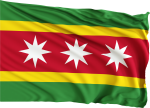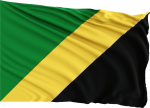Juno Reach: Difference between revisions
mNo edit summary |
mNo edit summary |
||
| Line 124: | Line 124: | ||
== Demographics == | == Demographics == | ||
The Juno Reach has a population of around 588,823,785 according to the most recent population estimate with the greatest population density occurring in Vesta and Juno due to their historic status as Sanctuary Worlds. As a result of | The Juno Reach has a population of around 588,823,785 according to the most recent population estimate with the greatest population density occurring in Vesta and Juno due to their historic status as Sanctuary Worlds. As a result of multiple worlds in the Juno Reach being historical Sanctuary Worlds, the population of the Juno Reach is formed by a diverse array of refugee populations fleeing Earth during the Evacuation. | ||
=== Language === | === Language === | ||
Revision as of 20:14, 4 December 2024
 | |
|---|---|
| The Juno Reach | |
|
Location: |
|
|
Subregions: |
|
|
Star Systems: |
10 |
|
Nations: |
|
|
Population: |
588,823,785 (2285 estimate) |
The Juno Reach is a subcluster of star systems located entirely within the Local Supercluster.
It is situated directly within the Local Cluster, being immediately Rimward-by-Spinward of the Solar Subcluster, between the Apollo Subcluster Trailward and the Indian Arm Spinward.
The subcluster includes seven sovereign states: the Free State of Banjuna-Mahara, Kumasi Colonial Republic, Republic of Vesta, Salamis Colonial Republic, Silvanus Colonial Republic, Tetus People's Republic, and United States of Juno.
The Juno Reach is principally comprised of ten primary star systems: Agenoria, Dea Dia, Flora, Janus, Juno, Juventas, Muziris, Silvanus, Veritas, and Vesta.
The Republic of Vesta is the most populous nation in the Juno Reach, with almost half of the subcluster's population, followed by the United States of Juno, Silvanus Colonial Republic, Tetus People's Republic, and Salamis Colonial Republic. Most of the population of the Juno Reach are located within only four star systems: Dea Dia, Juno, Silvanus, and Vesta.
Etymology
From Middle English Juno, from Latin Iūnō of uncertain origin. One hypothesis is derivation from Proto-Indo-European *dyúh₃onh₂- (“she of heavenly authority”), from *dyew- (“sky, heaven”) + *-Hō (“burden, authority”), reflecting her role as goddess of rulers. Another is derivation from Proto-Indo-European *h₂yúh₃onh₂- (“the young goddess”), from *h₂eyu- (“long time, lifetime”) + *-Hō (“burden, authority”), making it cognate with Latin iuvenis (“young”).
History
Countries and territories
| Flag | Common and Formal Names | Alignment | Settled Worlds | Population | Capital System | Capital Planet | Capital City | Classification |
|---|---|---|---|---|---|---|---|---|
 |
Free State of Banjuna-Mahara |
|
5,383,184 | Dea Dia | Small Power | |||
 |
United States of Juno |
|
176,370,000 | Juno | Al Merideen | Middle Power | ||
 |
Kumasi Colonial Republic |
|
8,607,585 | Dea Dia | Small Power | |||
 |
Salamis Colonial Republic | 14,739,016 | Dea Dia | Small Power | ||||
 |
Silvanus Colonial Republic | 77,334,000 | Silvanus | Small Power | ||||
 |
Tetus People's Republic |
|
23,290,000 | Silvanus | Tetus | Tetus City | Small Power | |
 |
Republic of Vesta | 283,100,000 | Vesta | Vestalia | Middle Power |
Astrography
Resource Development Areas
There are three notable resource development areas located in and around the Juno Reach: Evpraksiya Resource Development Area, Davila Resource Development Area, and Tibbitt Resource Development Area.
Jacobsen Ice Field
The Jacobsen Ice Field sits between the star systems of Agenoria, Flora, Janus, and Juno. It shares its namesake with the nearby Fort Jacobsen.
Hearth of Vesta
The center of the subcluster is dominated by a feature known as the Hearth of Vesta, around which the subcluster's resource development areas are situated.
Demographics
The Juno Reach has a population of around 588,823,785 according to the most recent population estimate with the greatest population density occurring in Vesta and Juno due to their historic status as Sanctuary Worlds. As a result of multiple worlds in the Juno Reach being historical Sanctuary Worlds, the population of the Juno Reach is formed by a diverse array of refugee populations fleeing Earth during the Evacuation.
Language
Languages found in the Juno Reach include Arabic, Bengali, English, French, Hausa, Hindi, Portuguese, Spanish, Swahili, Tamil, and Yoruba.
Economy
Culture
Infrastructure
There are eight notable naval bases located in and around the Juno Reach: Naval Base Covington, Naval Station Alencar, HMNB Vesta, Farah Anchorage, Pinnock Fleet Anchorage, Fort Jacobsen, Muziris Naval Station, and INS Kunjali.
Notable Wrecks
There are two notable shipwrecks in and around the Juno Reach: Wreck of the Polina Osipenko, and Wreck of the J.H. Hackett.